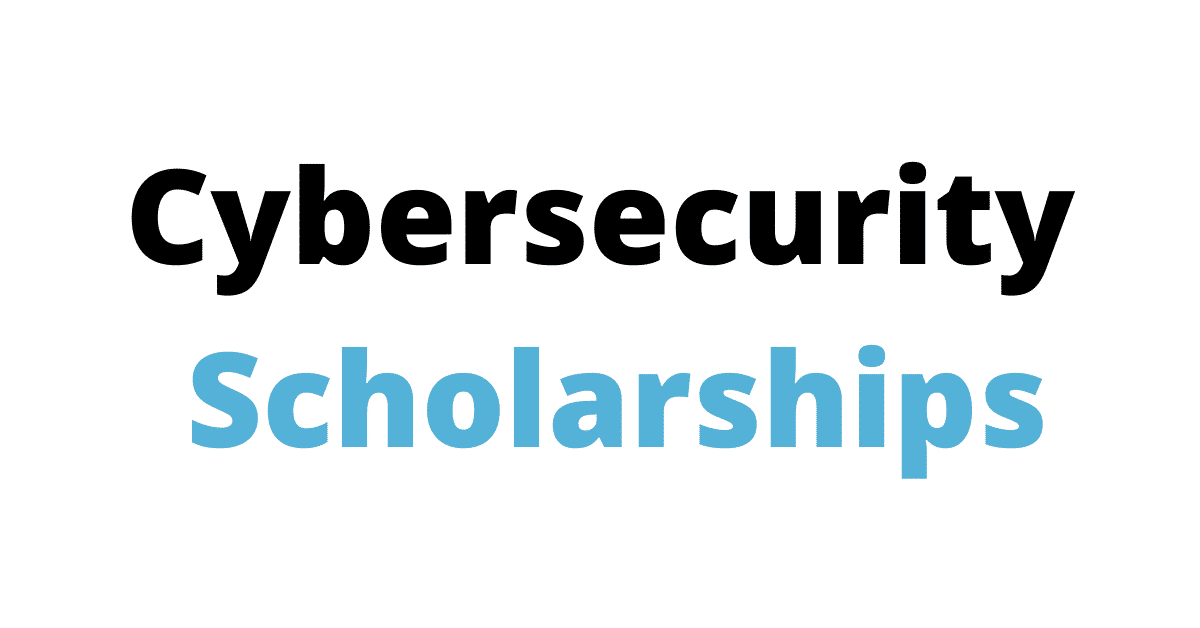Because of the high need for nursing professionals worldwide, MSN degree, or Masters of Science in Nursing, are among the most popular degrees in the world. Nursing occupations provide secure work environments transferable skills and are great for persons who find fulfillment in assisting others.
But what if you’re a seasoned nurse with a background in undergraduate studies? Is a Master of Nursing degree worth the financial and time investment? Well, this article will supply you with all the information you need if you want to pursue an MSN degree.
What Is Msn Degree?
MSN is an abbreviation for Master of Science in Nursing. Registered nurses (RNs) and BSN (Bachelor of Science in Nursing) graduates can further their careers with this sort of degree. MSN programs allow students to specialize in a variety of fields while also expanding their knowledge and abilities via intensive practical and theoretical lectures. An MSN degree is also required if you wish to pursue doctoral studies in nursing.
Most postgraduate nursing degrees are completed in 1-2 years. Some MSN programs will take three years to complete. These three-year programs allow you to study part-time or use the first academic year to learn about general nursing principles.
MSN Degree Salary
How much money can you make with a nursing master’s degree? The answer to that question is determined by a number of circumstances, including your state of residence and the sort of work you have.
Below is a display of the average yearly salary for various categories of nurses.
- Certified Nurse Midwife -$106,910
- Nurse Practitioner -$110,030
- Certified Registered Nurse Anesthetist -$174,790
Online MSN Degree
Below are some of the universities that offer an online MSN degree.
- 1. Simmons University offers an online MSN degree accredited by Commission on Collegiate Nursing Education (CCNE). Students get to study either part-time or full-time
- 2. Georgetown University offers an online MSN degree. You may earn your MS in Nursing in as little as 23 months and still gain practical clinical experience in evidence-based practice.
- 3. The College of St. John Fisher accommodates the Wegmans School of Nursing and offers an MSN online degree. The Wegmans School of Nursing is recognized among the top 100 nursing schools in the United States and is ranked sixth in New York state1.
- 4. Southern California University Prepares registered nurses for board certification as family nurse practitioners. Students can get their online MSN in as little as 21 months, especially if they opt for full-time study.
What Can You Do with An MSN Degree?

As health care for a growing and the aging population gets bigger, so will the demand for and breadth of nursing specialties. There are various sorts of nurse practitioner specialty, as well as pre-baccalaureate nursing jobs. Below are some of them:
1. NP (Nurse Practitioner)
Nurse practitioners (NPs) are licensed nurses who provide direct patient care by diagnosing and treating illnesses, as well as providing preventative care and examinations. Nurse practitioners might work alone or as part of a team. NPS has the ability to prescribe medicine in numerous states.
NPS must complete a master’s degree program in nursing. This is the bare minimum of education required to obtain a license.
2. Certified Nurse Midwife
Certified nurse-midwives (CNMs) offer gynecologic and primary health care to women ranging in age from adolescence to menopause. They evaluate and manage contraceptives, assist women during pregnancy and childbirth, care for babies, and diagnose and treat gynecological and general health problems. CNMs have the authority to prescribe medicine, treatments, diagnostic tests, and medical equipment.
CNMs must have a master’s degree from a recognized nursing school institution. CNMs must be licensed in their state and pass a national certification test offered by the American Midwifery Certification Board (AMCB).
3. Certified Registered Nurse Anesthetist
Certified Registered Nurse Anesthetists (CRNAs) conduct highly specialized activities such as providing general and local anesthetic, sedation, epidural, and spinal or peripheral nerve blocks during surgery, delivery, and other operations.
The overall process of becoming a CRNA is frequently lengthier than that of other nursing specializations, with nurse anesthesia programs spanning from 24-51 months and graduates receiving over 9,000 hours of clinical experience on average.
CRNAs must be licensed after passing the National Board of Certification and Recertification for Nurse Anesthetists’ national certifying test.
4. Clinical Nurse Specialist
Clinical nurse specialists (CNS) are registered nurses who have specialized knowledge and expertise in a particular care area, patient group, or medical specialties, such as critical care, geriatrics, or cancer. Clinical nurse specialists give direct patient care as well as advice and support to other nurses who are caring for patients in their specialty.
A master’s degree in nursing is required to become a CNS. Clinical nurse specialists must be licensed by passing necessary state and/or national licensure tests.
Types of MSN Degrees
There are as many different kinds of nursing degrees as there are different kinds of nursing specialties. Many degrees may be earned while working, while others demand a full-time commitment to education. Below are some of these types of degrees:
1. ASN to MSN
ASN to MSN is an abbreviation for Associate of Science in Nursing to Master of Science in Nursing. These degree programs are designed for individuals who have earned an Associate of Science in Nursing. The curriculum is intended to fill any knowledge gaps in baccalaureate-level education, allowing students to complete their degree in less time than it would take to complete an ASN or MSN.
2. ADN to MSN
ADN to MSN is an acronym that stands for Associate Degree in Nursing to Master of Science in Nursing. This nursing degree program is comparable to the ASN to MSN route. Some programs allow students to get their degree in as little as 24 months.
3. RN to MSN
This means Registered Nurse to Master of Science in Nursing. These programs are intended for registered nurses who have a nursing diploma, an associate degree in nursing, or a bachelor’s degree in a discipline other than nursing. According to the American Association of Colleges of Nursing, RN to MSN programs usually run two to three years and incorporate baccalaureate-level coursework that may be lacking in associate’s-level curricula (AACN). Specific requirements differ depending on the institution and the student’s previous schooling.
4. BSN to MSN
BSN to MSN is an abbreviation for Bachelor of Science in Nursing to Master of Science in Nursing. This post-baccalaureate master’s degree program is designed for nurses who want to further their education. These programs may frequently be completed in two years or less and may build on baccalaureate-level abilities.
5. MSN to WHNP
MSN to WHNP is an abbreviation for Master of Science in Nursing Women’s Health Nurse Practitioner. Becoming a women’s health nurse practitioner (WHNP) can be a rewarding alternative for nurses who are especially interested in women’s health. The curriculum for WHNP programs includes standard advanced practice courses as well as women’s health-specific courses and clinical practicum hours. Candidates must also get or maintain their registered nursing license and pass a certification exam after finishing the graduate program.
6. MSN-FNP
MSN-FNP is an abbreviation for Master of Science in Nursing Family Nurse Practitioner. Family nurse practitioners are advanced practice nurses who work in primary care settings with families. FNP master’s programs can last up to two years and contain up to 60 credit hours of coursework, and 600 supervised practicum hours. Candidates may be allowed to continue working while enrolled in their graduate degree if they take online classes. The certification tests for family nurse practitioners are administered by the American Academy of Nurse Practitioners and the American Nurses Credentialing Center.
7. MSN-AGACNP
MSN-AGACNP is an abbreviation for Master of Science in Nursing Adult-Gerontology Acute Care Nurse Practitioner. Adult-gerontology acute care nurse practitioners with this specialty care for adult, older adult, and elderly patients suffering from acute, chronic, or critical conditions. Curriculum and core coursework may differ significantly amongst programs, but students should expect to finish between 40 and 50 credit hours. Depending on the curriculum, practicum hours might range from 500 to 600 hours or more. AG-ACNPs are certified by the American Nurses Credentialing Center and the American Association of Critical-Care Nurses.
8. MSN-Midwife
MSN-Midwife is an abbreviation for Master of Science in Nursing Certified Nurse Midwife. Graduate degrees in nursing, midwifery or public health care are available to certified nurse-midwives. A Bachelor of Science in Nursing is typically required for MSN midwifery programs. Nurse-midwives are certified by the American Midwifery Certification Board after successfully completing an authorized school (AMCB). To take the certified nurse-midwife examination, you must have a graduate degree and a valid registered nursing license.
MSN MBA Dual Degree
A combined MSN/MBA degree allows you to combine your health care experience with business knowledge and abilities. The MSN/MBA option allows you to earn both a Master of Science in Nursing (MSN) with a specialization in Health Services Leadership and Management and a Master of Business Administration (MBA) (MBA).
It prepares you to manage the business of health care as an administrator in a health care system and to make financial, strategic planning, resource management, and governance decisions at the senior management level.
MSN/MBA program has the following features:
- 66-72 credits of necessary curriculum
- can be finished in two years of full-time, year-round study
- may be completed part-time over a period of up to seven years.
What can you do with an MSN/MBA degree? Well, your business background qualifies you to contribute to the development of novel ways to health care delivery. Within a health care firm, you may work in finance, marketing, or human resources, or you could be the director of operational services, a financial officer, a chief nursing officer, or a consultant.
MSN Degree Jobs

After receiving your Master of Science in Nursing (MSN), you may anticipate seeing a large rise in salary, especially if you go on to pass an Advanced Practice Registered Nurse certification test. According to the Bureau of Labor Statistics (BLS), MSN-prepared nurses earn $42,000 more than RNs on average. Below are some MSN degree jobs:
1. Certified Registered Nurse Anesthetist (CRNA) – Salary: $189,190
According to the BLS, nurse anesthetists make the HIGHEST wages of any nurse, with a mean annual compensation of $189,190 in 2020. These well-paid nurses provide anesthetic and pain treatment for patients during surgeries.
Starting in 2025, CRNAs will be needed to have a doctorate degree, which means that this will no longer be an option for nurses with a master’s degree as their greatest level of study.
2. Nurse Administrator – Salary: $118,280
Nurse administrators, sometimes known as nurse managers, are in charge of a medical facility’s nursing personnel. These nursing leaders are qualified registered nurses with years of bedside experience. Nurse administrators normally require a master’s degree; however, some are equipped with a bachelor’s degree.
While the BLS does not retain precise statistics on nurse administrators, it does show the mean average income for medical and health care managers, which would undoubtedly include nurse administrators, as $118,800.
3. Nurse Practitioner (NP) – Salary: $117,670
Nurse practitioners are a sort of advanced practice registered nurse that focuses on a certain patient demographic, such as acute care, emergency care, pediatrics, and many others.
The specific specialty you pick will decide your salary, but the highest-paid specialties, in general, include psychiatric health, pediatrics, gerontology, neonatal, and orthopedics. More information about Nurse Practitioner Salaries may be found here.
4. Certified Nurse Midwife (CNM) – Salary: $115,540
A certified nurse-midwife (CNM) is a nurse who offers women general health and wellness care, such as assisting with childbirth, family planning, genealogical and prenatal care. According to the BLS, the average compensation for nurse-midwives is $115,540.
5. Clinical Nurse Specialist (CNS) – Salary: $106,407
Clinical nurse specialists, as the term suggests, have a high degree of expert knowledge in their specialty and so attract a higher salary. Clinical nurse specialists, like nurse practitioners, specialize in certain patient groups, but, unlike NPs, they place a greater emphasis on teaching nurses and improving patient outcomes. According to ZipRecruiter, the typical pay for Clinical Nurse Specialists is $106,407 as of July 2021.
6. Clinical Nurse Leader – Salary: $104,107
Clinical nurse leaders are master’s-prepared nurses who do not possess APRN credentials. CNLs have a broader perspective, working with all of a patient’s caregivers and looking at larger trends in the patient’s treatment.
A nurse in this job is likely to rise fast and earn greater money. Clinical nurse leaders, for example, receive an average yearly pay of $104,107, according to ZipRecruiter.
7. Informatics Nurse – Salary: $100,000+
This degree focuses on the convergence of computers and clinical care, making it an excellent choice for nurses who like working with technology. According to the HIMSS 2017 Nursing Informatics Workforce Survey, 46 percent of respondents receive base incomes of more than $100,000 per year.
8. Nurse Educator – Salary: $84,060
A nurse educator may work in an academic environment, training nursing students earning their own degrees, or in a clinical context, such as a hospital, educating personnel. According to the BLS, the average annual pay for nurse educators in postsecondary institutions is $84,060.
Direct Entry MSN Programs
What is the definition of a Direct-Entry Nursing Program? A direct-entry master’s in nursing (MSN) program is designed for individuals who have a non-nursing degree and want to work as a registered nurse (RN) or advanced practice nurse (APRN). Nurses with a master’s degree are known as advanced practice registered nurses (APRNs). Nurse practitioners, certified nurse midwives, nurse anesthetists, and clinical nurse specialists are all examples of APRNs.
It’s vital to remember that program requirements might differ based on how they’ve developed. Some institutions’ direct-entry MSN programs provide tracks for registered nurses with a bachelor’s degree in nursing. However, others may not accept students with a BSN degree since the curriculum is designed for individuals with no nursing background. Some prerequisites may include:
- A bachelor’s degree in nursing or a related profession is required.
- A minimum GPA of 3.0 or higher is required.
- Successful completion of necessary courses, usually within the last five years
- Recommendation letters and/or professional references
- RN certification
- GRE (Graduate Record Examinations) exam scores
- An interview with the school, either in writing or over the phone
- A completed application, which may contain a statement of career objectives
Direct-Entry MSN Curriculum
A direct-entry MSN program’s curriculum comprises a combination of nursing theory classes, hands-on exercises and simulations, and clinical rotations in a real-world health care setting. While nursing courses can be done online, any on-campus events or coursework may need you to visit the school. Online programs may assist you in locating clinical rotations near your home.
Direct-entry MSN programs address a wide range of areas, including:
- Pathophysiology
- Pharmacology
- Medical research
- Medical examination
- Fundamental nursing abilities
Your courses will educate you on how to care for a number of demographics, including women, children, the elderly, and/or individuals suffering from mental illnesses.
Most MSN schools for direct entry will also prepare you to take the nursing licensing test (NCLEX). To become a registered nurse, you must pass this exam. Some colleges may also provide post-certification masters for APRN positions.
Conclusion
In this article, we look at virtually all you need to know about getting an MSN degree and the usefulness of such a degree. We hope you find this article quite educative and informative. Do visit our website for any academic information.








